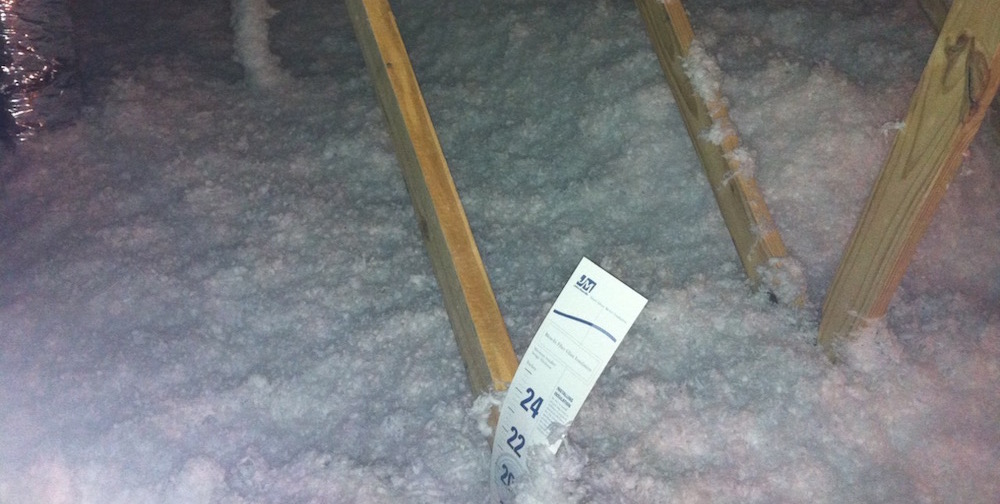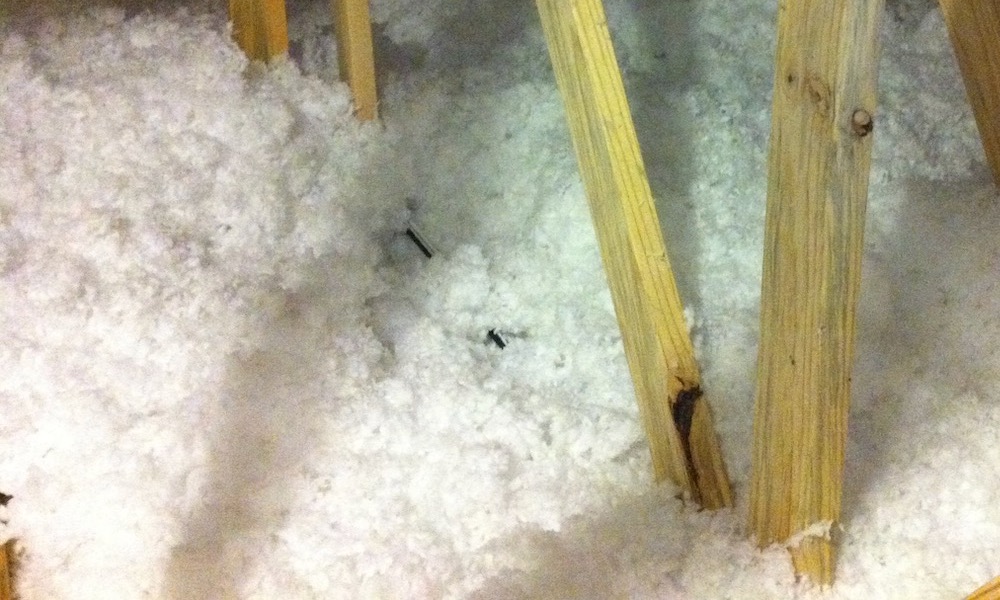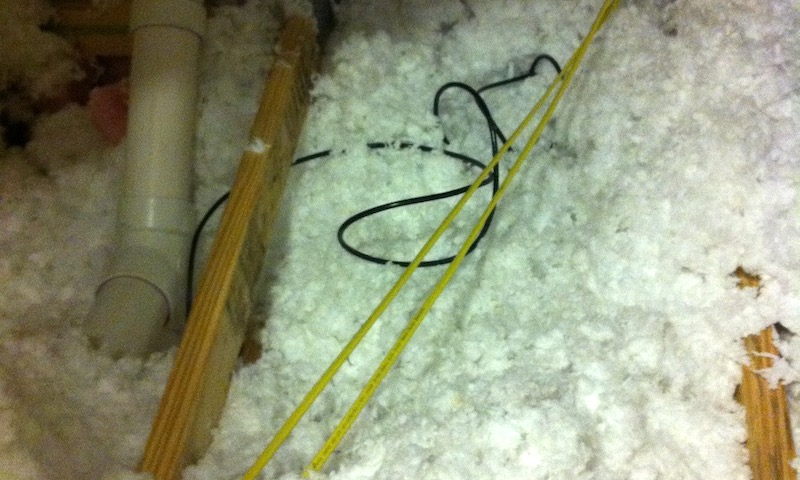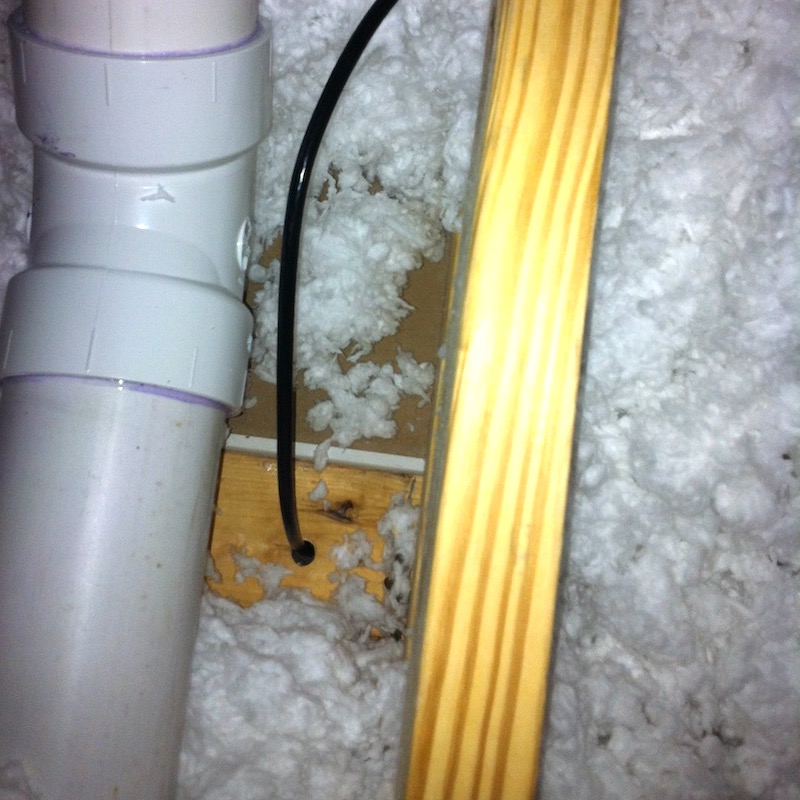The Cable Guy Did It! — Attic Insulation Gone Awry

On one of my recent quality assurance trips for our HERS raters, I made a discovery of a building envelope problem that’s best told in pictures. When I went into the attic, what I noticed first was that the blown fiberglass insulation looked really good. They’d put in enough insulation for a high R-value and had installed it to RESNET’s Grade I quality, as shown in the first photo below.
Then I looked around the whole attic. On the other side of the pull-down stairs, I took the second photo. Still looks pretty good, if a bit lumpy.
But wait! What’s that black line in the insulation right across that truss in the middle?

It’s a cable! Following it a bit further, I found the mess below. Here’s where the cable goes from the attic down into the house. The cable guy pushed a lot of insulation aside in this area to drill his hole for the wire and push it down into the house.

Here’s a closeup view of the hole through the top plate. No, the cable guy didn’t seal it. No, the cable guy didn’t redistribute the insulation to cover everything back up.

Bottom line: The builder got a good insulation job in the attic. Then the cable guy came in and messed it up. You might think that it’s just a small hole and a small disturbed area, but if you read the articles linked below, you’ll find that a small area can have a big effect on total heat flow. Flat insulation is much better than lumpy!
Allison A. Bailes III, PhD is a speaker, writer, building science consultant, and the founder of Energy Vanguard in Decatur, Georgia. He has a doctorate in physics and writes the Energy Vanguard Blog. He is also writing a book on building science. You can follow him on Twitter at @EnergyVanguard.
Related Articles
Flat or Lumpy – How Would You Like Your Insulation?
Attic Stairs – A Mind-Blowing Hole in Your Building Envelope
Comments are closed.
This Post Has 5 Comments
Comments are closed.

And that is why I tell
And that is why I tell customers to get any electric work (new ceiling fans and the like) done before I come to reinsulate. Thanks for the pictures!
Ah yes, the common site of
Ah yes, the common site of older homes. Kind of suprised you found it on a relatively newer home. Would expect the cables to be run first.
Another problem area is
Another problem area is ceiling mounted speakers. They are often not sealed. Some installers just throw a piece of cardboard over the top of the speaker to keep the insulation off, but few air seal the speaker. These are often installed after the electric inspection and Thermal Bypass (or TEC) inspection by low-voltage contractors.
This is why I recommend spray
This is why I recommend spray foam on the roof deck. Then even a gut rehab leaves the thermal envelope intact.
-Rob
This is far too common, I
This is far too common, I find that homeowners are the culprit in a lot of cases. They install can lights and leave large areas of insulation disturbed, right down to the sheetrock